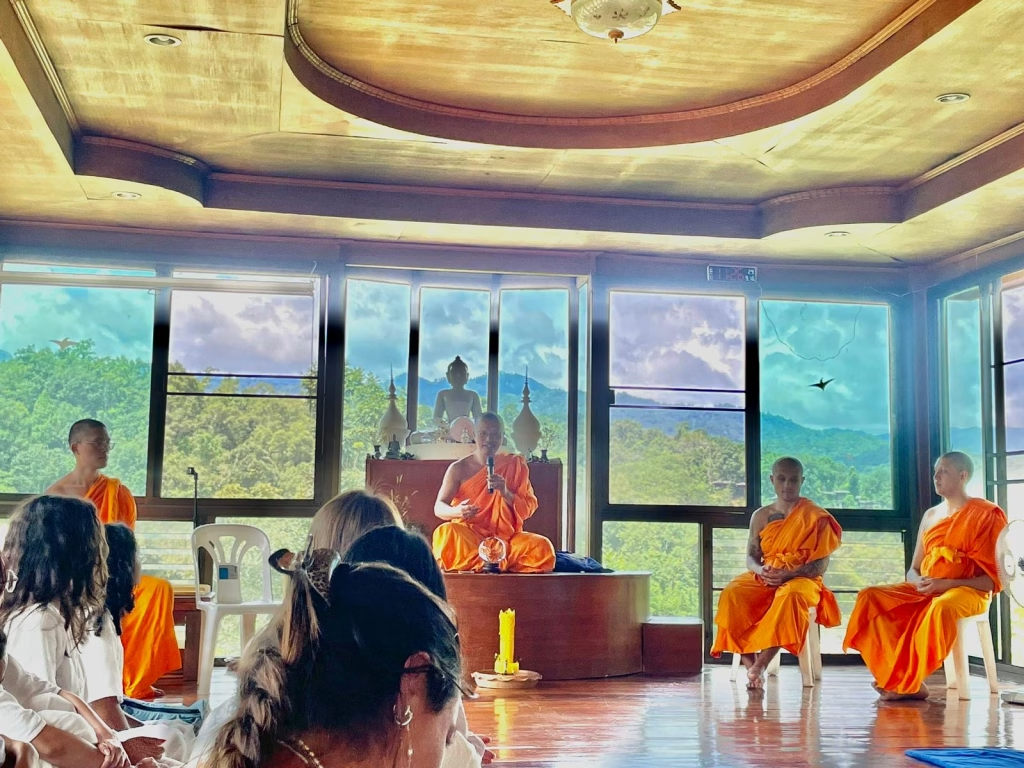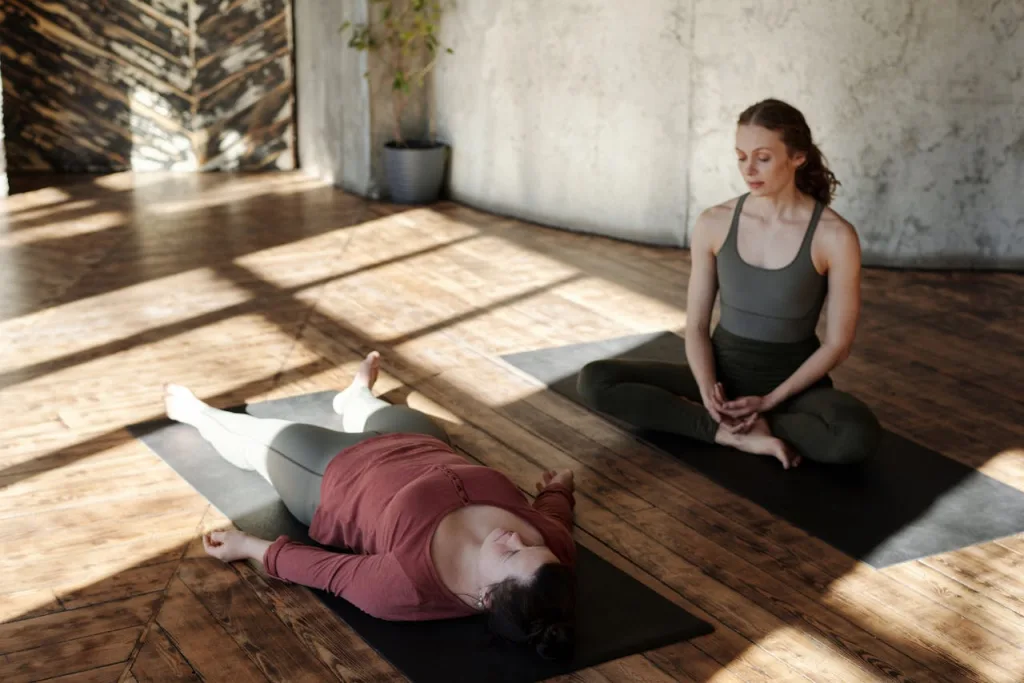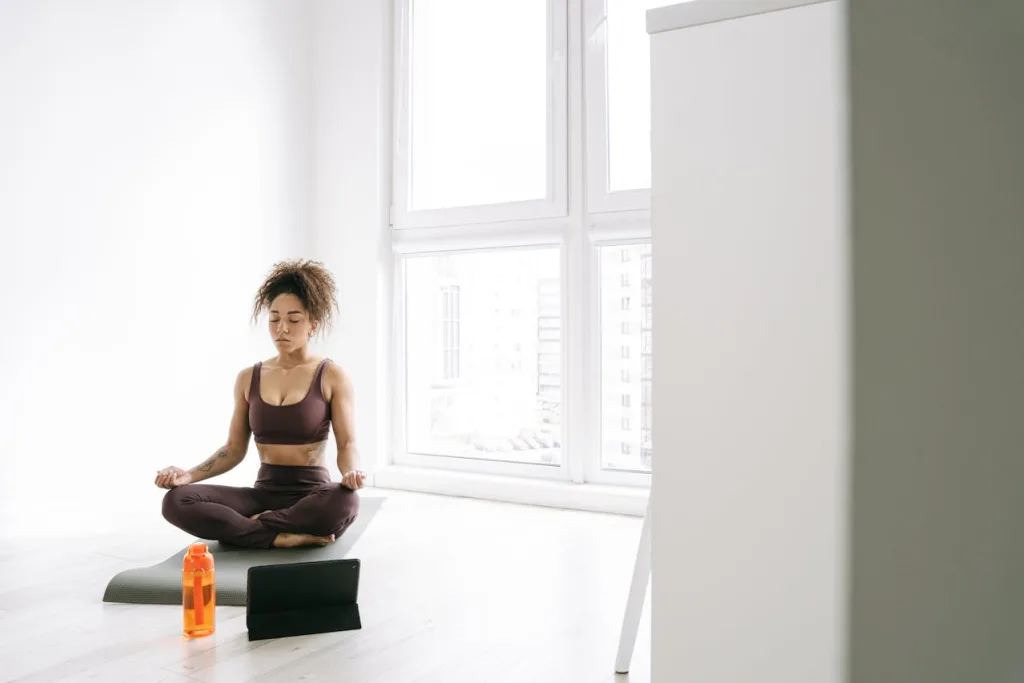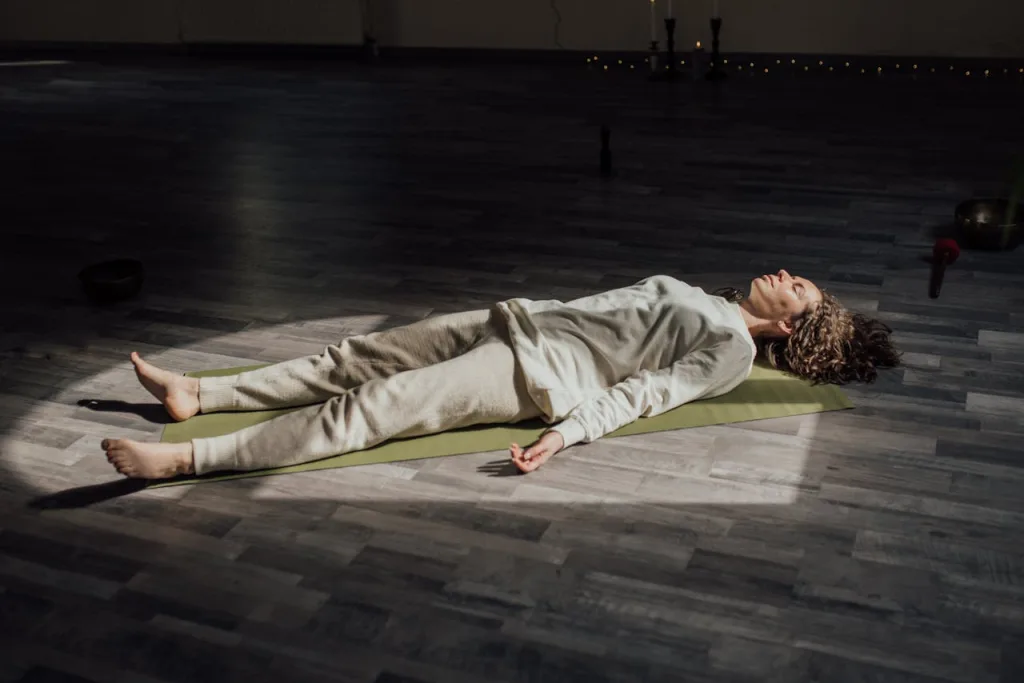Attending a meditation retreat in Thailand, I expected to learn about meditation, wind down and find inner peace. But it was so much more than that.
I loved listening to monks’ personal stories and experiences and learning about Buddhism in more detail.
It was great to hear young monks quote Budda and current thinkers like Ram Dass and even Wim Hoffman. It was interesting to see some cross-overs of Buddhist spiritual teachings with science-based wisdom and philology that I have learned over the years.
Here are some main nuggets of wisdom I took away and will (hopefully) continue to apply in my life.
1. The Path To Growth
The teachings of Buddhist monks focused on simple steps to achieving mastery: showing up daily, repeating the task with the beginner mindset, and slowly mastering it through repetition. You can only grow when you take yourself out of your comfort zone. It takes failure, pain, and discomfort to progress to the next level. True growth happens on the edge of discomfort.
Growth is not being afraid to fail, remembering the very simple truth that a master must fail way more often than a beginner. If you keep doing the same comfortable things, you will get the same results as you have always got and will be stuck at the same level.
2. Trully Understanding Impermanence
Understanding impermanence is fundamental to Buddhist teachings. Change can be noticeable, like seasons, landscapes, or an ageing person. Change can also be subtle and on a micro level. For example, our body constantly changes by cells dying and regenarating, and our thoughts and emotions continually arise and pass.
We all know it, but it takes time to understand that everything changes constantly and nothing stays the same can put our minds at ease. Kids grow up, you age, flowers bloom and then die, and beautiful or painful experiences pass and become memories.
Understanding impermanence helps us enjoy the present as it will inevitably pass. Instead of clinging to material things or feelings, we need to learn to detach ourselves and just be.
In Buddhism, attachment, such as money, status, material things, or attachment to our feelings and the people we love, is the main reason for suffering.
There will not be one person in this world going through life without losses; I hope that understanding Impermanence will help me deal with all the life changes. Trying to deeply understand the concept of impermanence is helping me to accept ageing and not worry about every new wrinkle on my face. It also helps me enjoy the present, whether good or disappointing, but I treat it as an experience from which I can learn.
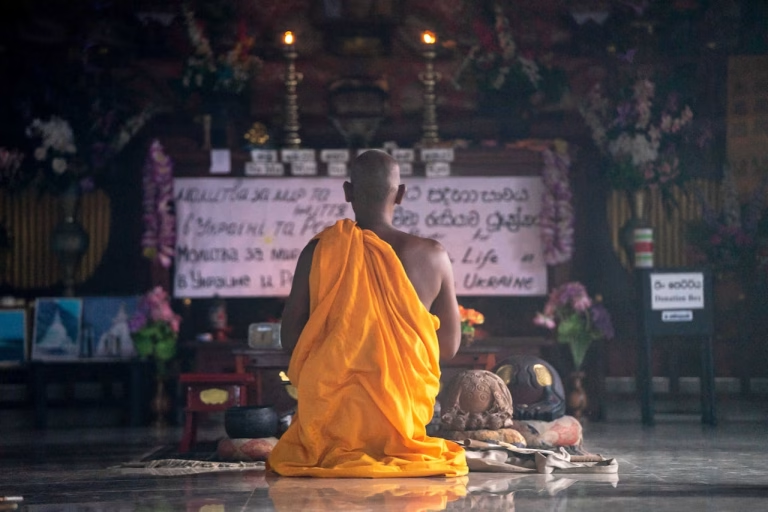
3. Letting go of attachments
This point of Buddhism is probably the hardest to understand and implement. It takes a lot of dedication and practice.
It’s important to clarify that non-attachment does not mean indifference or apathy. In Buddhist practice, it is still possible to love, care, and engage with the world, but without being overly attached to the outcome or clinging to the idea that things will remain the same forever.
If you practise non-attachment, you can fully appreciate the present moment without clinging to it or being devastated when it changes.
Buddhism teaches that letting go of attachments can free you from the cycle of suffering and help you approach life with a balanced mind. This does not mean rejecting relationships or life’s pleasures but engaging with them without clinging or craving.
4. Happiness is within you
“Peace comes from within. Do not seek it without.”
- Siddhārtha Gautama
I have been studying happiness for a while. Science describes happiness as a complex state that depends on four external factors: faith, family, community and friends, and meaningful work. If you are interested in the subject of happiness, you can take a free Managing Happiness course at Harward University.
Buddhist happiness is grounded in inner peace, wisdom, and freedom from suffering; in other words, happiness is within you, not external circumstances.
With meditation, you can train your mind not to react to external substances and stay neutral. Yes, you can find happiness in travelling and spending time with your family, friends, and community, but true happiness starts within yourself, in your calm and accepting mind and inner peace.
No one is happy all the time; this is life. Even monks experience pain and grief. But with a quiet and neutral mind, letting go of unnecessary attachments makes life much more enjoyable and peaceful.
5. Minimalist way of living
Being a digital nomad for three years has taught me to be more minimalist. When moving from one place to another, I want to carry as little as possible. I don’t want to drag around things that are not used or clothes that are never worn, and I don’t collect decorations or things that are never used.
Monks are masters of minimalism and simple living. They wear only one outfit, mostly walk barefoot and have one pair of sandals. They don’t wear jewellery and have the same haircut (shaved head). They eat very simple food and don’t drink coffee or alcohol. They only focus on their purpose and do not get distracted by silly things like decision-making about outfits or focusing on their looks.
6. Detaching from your ego
In Buddhism, the ego is an illusion that causes people suffering. By practicing mindfulness, non-attachment, compassion, and insight into the nature of impermanence and non-self, you can gradually detach from the ego, which would lead to freedom, peace, and clarity, ultimately paving the way toward enlightenment.
Monks only eat what is offered to them. One monk referred to this as being a beggar.
In the earliest days of Buddhism, monks were encouraged to make their robes from discarded fabrics such as cloth left at cremation grounds, old clothing, or fabric scraps found in refuse heaps. These pieces were stitched together to form a patchwork robe, symbolizing humility, non-attachment to material wealth, and detachment from ego.
Most of our envy or desire for more comes from our ego, and we should all learn to control it and be grateful for what we have.
7. Focus on your Purpose
The ultimate goal of a monk’s life is to attain enlightenment (Nirvana), which is a state of perfect wisdom, peace, and freedom from the cycle of birth, death, and rebirth (samsara). While this is the main focus for monks, they also teach others to free themself from suffering.
The monks teach us that focusing on what matters to you the most will achieve great results and help you feel happy.
What can you learn from monks about purpose? Stop distracting yourself with chasing money or trying to watch all the news about wars that you can’t do much about. Focus on things that you can make a change on.
To learn more about finding purpose, read Finding Purpose in Life: Do We Need It to Be Truly Happy?
8. Nature is a part of us
For the last few years, I have learned that nature is healing. The sound of a never-stopping river that calms you down, your feet grounding on the grass or mud after the rain, swimming in the sea, or listening to the sounds of the forest or jungle.
Staying in the retreat nestled in the jungle and surrounded by so much nature rejuvenated my soul even more.
You can read about the retreat here: My Experience In The Pa Pae Meditation Retreat Near Chang Mai, Thailand
Nature plays a massive role in Buddhist teachings. It is a metaphor for spiritual truths and a path to wisdom. By observing and living in harmony with nature, Buddhists gain insights into impermanence and interconnectedness while also developing mindfulness, compassion, and respect for all life. Nature is an essential part of understanding the deeper truths of existence.
9. Benefits of daily meditation
I have been meditating on and off for around 12 years, but I am always guilty of meditating when I need it and stopping when I feel better or when I am too busy. I have learned or been reminded of that meditation is like a workout to your brain, and you will only start feeling the benefits when you create a habit of practising meditation every day. I have promised myself to meditate every day, even 5 or 10 minutes, for a year and note the differences every month.
To summarise:
I am so grateful for the opportunity to spend time with Buddhist monks and learn from them. It was an eye-opening experience. I am not saying that we all should become monks, but we all can lead simpler lives, focus on inner peace, and be kinder to ourselves and others.
Silvija Meilunaite, PN1-NC, CSMC, is a certified nutrition and menopause coaching specialist who writes about midlife health, nutrition, and evidence-based wellness. She focuses on research-driven approaches to feeling better in your 40s and beyond, with a special interest in low-tox living and supportive daily habits.
- This author does not have any more posts.

